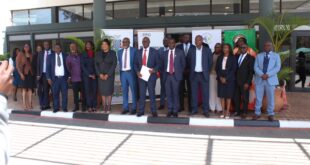
The National HIV/AIDS/STI/TB Council (NAC) has asked the National Assembly of Zambia to play a catalytic role in improving sexual and reproductive health and rights of young people under the age of 18 years who account for 53 percent of the country’s population by supporting a wide spectrum of young people centred programmes.
NAC Director General Dr Connie Osborne on Tuesday this week told a Committee on Youth, Sport and Child Matters chaired by Member of Parliament for Kalabo, Chinga Miyutu that young people under 18 were at a higher risk of HIV infection than the general population
In her presentation on ‘Sexual and Reproductive Health and Rights for Children and Young people in Zambia’, Dr Osborne also supported the continuation of Comprehensive Sexuality Education in schools and hoped that Government’s directive for an evaluation of the subject through a national consultative process will lead to better implementation of the programme.
The three sub population groups of young people who are of great concern to NAC are orphans and vulnerable children aged 0-18 years including children born from HIV positive mothers, adolescent girls and young women in the age group 15-24 years and boys and young men aged between 15 to 39 years.
NAC lobbied the law makers to help in changing the current scenario of rampant child marriages, frequent sexual and gender based violence, high rate of teenage pregnancies and sexually transmitted infections, coerced and early sexual activities and low knowledge levels of HIV prevention.
NAC further requested the Members of Parliament to support the development of a national Sexual and Reproductive Health and Rights Strategy for out-of-school, unmarried and unemployed youths, review of the 2016-2021 National Strategy to End Child Marriages, support research through an Integrated Behavioural and Biological Survey into why knowledge levels about HIV of adolescents and young people has not changed much in the last 12 years, establishing average age of sex initiation for boys and girls to inform policy formulation, establishing age and extent of transactional sex.
Additional areas in which NAC wished the MPs to play a role include supporting provision of youth-friendly spaces in all health facilities to increase young people’s access to sexual and reproductive health services as well as mentoring health workers to be more competent in serving the needs of young clients.
Other MPs in attendance included Committee Vice Chairperson Emerine Kabanshi, Edgar Singo’mbe, Pavyuma Kalobo, Listed Tembo, Vizukanji Siwanzi, Whiteson Banda, Rasford Bulaya and Kabwe Mwiinga.
Dr Osborne was accompanied by Director of Programmes Mr Fortune Chibamba, Public and Private Sector Coordinator Ms Ellen Mubanga and Communications Manager Mr Justine Mwiinga.
 NAC Zambia nac.org.zm
NAC Zambia nac.org.zm
